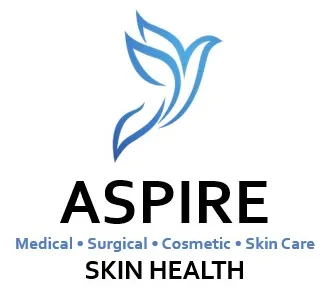Sun Damage Ultraviolet Radiation

Manifestation
If you notice any of the following signs of sun damage to your skin, contact Aspire Skin Health for a full evaluation and recommended, skin-rejuvenation options:
- Freckles
- Wrinkles, especially around the eyes, and on the face, neck, or shoulders
- Sun spots
- Age spots
- Discolored patches of skin
- Changes in skin tone
- Sunburn or redness
- Lip lines or wrinkles

FAQs Sun Damage
Can Sun Damage Be Reversed
The term sun damage refers to skin areas damaged by overexposure to ultraviolet (UV) rays. When you go outside on a sunny day, your skin is immediately exposed to UV rays unless you have proper protective products. Coming into contact with UV ray is inevitable, but over time, excessive UV exposure results in uneven skin tone, sun spots, and cosmetic concerns with your skin, especially in more sensitive.
Several treatment options are available to help reverse UV damage to the skin. However, depending on the severity and extent of sun damage, you may or may not be able to completely reverse this damage. Speak with a trusted skin doctor about your skin concerns to determine which treatment would be the most beneficial for you.
What Should I Do After Sun Exposure?
The most important part of preventing sun damage to your skin happens before you are exposed to the sun, not after. Whenever possible, put on the correct protective gear, like hats, shoulder coverings, and of course, sunblock with an appropriate SPF level for your skin type. However, if you have already been exposed to the sun, there are several things you can do to help limit the extent of damage to your skin. These include:
- Cooling the skin off by taking a cool shower
- Moisturizing the skin as soon as possible
- Applying aloe cooling gel to the exposed area (even if no sunburn has shown yet)
- Staying hydrated by drinking plenty of water
- Avoiding rubbing the skin (such as with exfoliants or rough clothing fabrics)
How Do You Heal Damaged Skin?
Here are some helpful tips for keeping your skin healthy and reversing the signs of sun damage:
- Use sunblock as much as possible (at least 35 SPF or higher)
- Apply topical antioxidant with proven stability and correct pH for optimal absorption
- Stay hydrated by drinking water throughout the day as recommended for your age and size
- Put moisturizers on daily
- Visit your skin doctor at Aspire Skin Health for routine exams and especially for concerning skin lesions
Can Age Spots Become Cancerous?
Age spots or sun spots are very common in people, especially those who spend a great deal of time outside in the sun. Many age spots do not require medical treatment unless a person is unhappy with the way the spot looks. However, some spots that change or grow larger over time may be cancerous. Always consult with your skin doctor if you notice any of these signs in your age spot:
- Rapid increase in the size of an age spot
- Unusual colors on an age spot
- Dark coloring on an age spot
- Irregular borders on an age spot
- Itchy, burning, or red sun spot
Treatments for Sun-Damaged Skin
Everyone’s skin is unique and has a different degree of sun damage. The best way to personalize your treatment is for you to visit your skin doctor. Ask Dr. Nguyen to evaluate your skin type, observe the extent of your sun damage, and recommend the best options for you. No two skin types are exactly alike, so there is no one-size-fits-all treatment regimen for sun damage. Some of the most popular treatment options include:
- Laser therapy (HALO, MOXI, and ClearSilk)
- Light therapy (BroadBand Light (BBL) / IPL, SkinTyte)
- Medical-grade facial (Hydrodermabrasion)
- Chemical peels
- Prescription medications (oral and topical, i.e. retinoid)
- Skincare products (niacinamide, tranexamic acid, azelaic acid, antioxidants, etc.)

Schedule an Appointment
If you have signs of sun damage to your skin, visit Aspire Skin Health for the best treatment options. Our clinic provides compassionate and personalized medical care using cutting-edge treatments. Call us today at 817-482-0000 or fill out an appointment request form.
For other medical conditions, please visit the main page for Medical Services.
For more information on sun protection, please visit the American Academy of Dermatology website https://www.aad.org/public/everyday-care/sun-protection.
